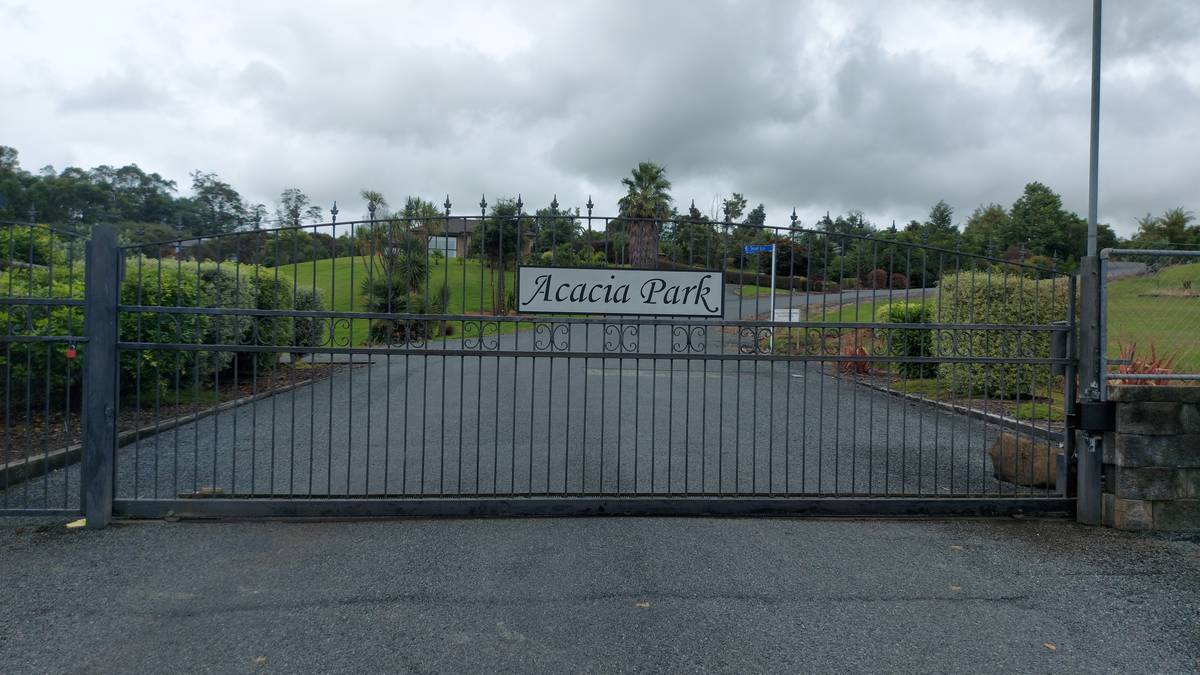The Acacia Park gate is at the centre of an argument over management and access rights. Photo / Shannon Pitman
A gated community property owner has taken other residents to court in a bid to have the gate removed because of the inconvenience it is causing to his Airbnb business.
Acacia Park, located south of Whangārei off Tauroa St, has grown rapidly since it was first registered as a subdivision in 1998. It is now home to about 50 properties, many of which are lifestyle blocks, but there’s an argument brewing about who manages a large coded gate at the entrance of the subdivision – and whether it should even be there in the first place.
Property developers Acacia Park Development originally installed the gate at the easement known as Acacia Drive. But when the company ceased in 2015, the gate was left behind with no record of any formal agreement or consent with council or landowners on who should manage it.
Advertisement
A number of residents formed the Acacia Park Landowners Association in 2002 and drew up a constitution signed off by 16 residents with rules around living in the development. Part of that included a plan on how the code at the gate would be managed. It is not compulsory for any property owner to join the association.
Andrew Norman purchased an Acacia property in 2015. He says he bought the property – not the association and its rules – and there is also no record of the gate on his purchase property agreement.
Since establishing an Airbnb on his lot, he claims his clients have experienced a number of difficulties with access as the code is changed every three months. The association challenged this claim and say Norman has never shown any evidence of inconvenience.
Norman’s lawyer John Watson said the landowner’s association has exercised its right over access to private properties by managing a gate that has no record of being consented to by any owners.
Advertisement
“The association, right from the start has pursued a situation that has privilege of access to the right of way and denies to Airbnb clients because they are not land owners.
“The gate should be removed,” Watson told Judge Philip Rzepecky when the case landed in the Whangārei court recently.
The landowner’s association claims changing the code is for security purposes however Watson said this was “nonsense” as the perimeter is guarded by a standard farm fence and there are many occasions where the gate is left open.
When questioned about the relevance of the gate the association’s lawyer Richard Mark argued the gate gives the perception of security and also an advantage when selling their properties.
Mark also argued that all property owners are a shareholder of the easement and that Norman does not have sole ownership over the gate.
“If something happens to the road, it is the property owners who are liable so they have a right to protect the easement that is Acacia Road,” Mark said.
Norman seeks an automatic sensor pad, a permanent code or the gate to be removed altogether.
Judge Rzepecky questioned the legal basis the authority has to manage the gate and has reserved his decision on the future administration of the gate.
“In the meantime, I urge you to still come to an amicable arrangement after today hearing each party’s points of view.”








